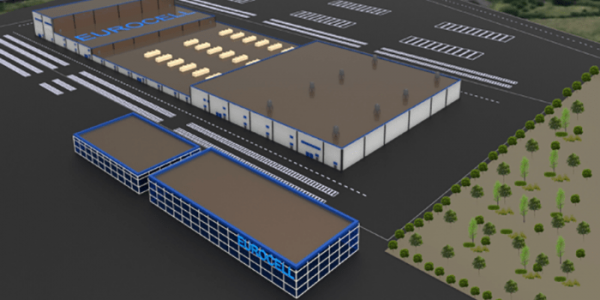Anglo-Korean firm Eurocell is aiming to begin manufacturing lithium-ion batteries in the UK, the Netherlands or Spain within 12 months.
Eurocell has shortlisted six sites, and are in discussions with owners and manufacturers across the three countries with the final choice dependent on gaining the “right level of central government support and investment”.
The plant will be built in two stages and use Eurocell’s “proven” battery IP that the firm says is ready for scaled-up manufacturing— although all a Eurocell spokesman would tell BEST is “the battery chemistry is intellectual property and we won’t be making this information public”.
The total capacity of the plant will be 3.25GWh; with the first stage at 155MWh and the second at 3.1GWh.
The company says its “innovative and disruptive” batteries were developed in Korea by its partner Eurocell— whose website (which is not up to date, according to a Eurocell spokesman) states it makes lead-acid, nickel-cadmium, nickel-hydrogen and lithium-ion secondary batteries.
Some details of those performance claims were given to BEST, and include: 10C cycling, and a 7,000 cycle life at 4C-rate with a capacity retention rate of 98%.
Supplying Europe’s battery demand
With an initial £800 million ($1 billion) investment planned over two phases, the company intends to supply European energy storage, automotive, and e-mobility applications.
The first phase will begin producing cells at scale by early 2023 for “existing customers”, again the company has not said who those customers might be.
In parallel, a bespoke facility will be constructed on the same site as the planned plant, capable of producing in excess of 40 million cells per year by 2025, claims the firm.
Eurocell is led by a UK team and backed by its unnamed South Korean partner, which has “decades of experience in electro-chemistry, making batteries at mass-scale and building the gigafactories to produce them”.












